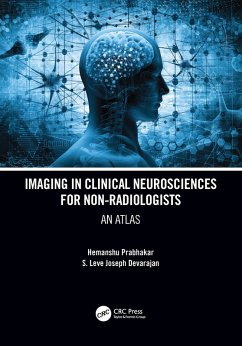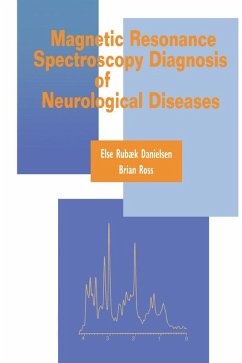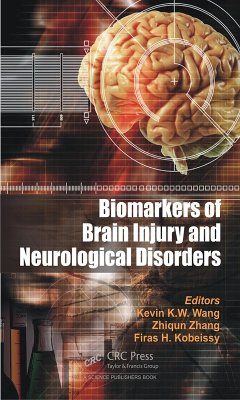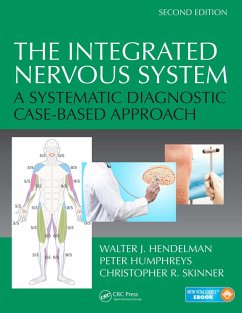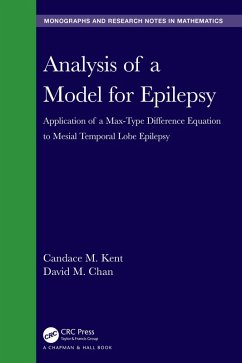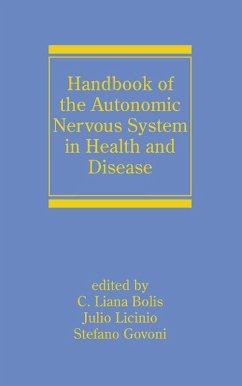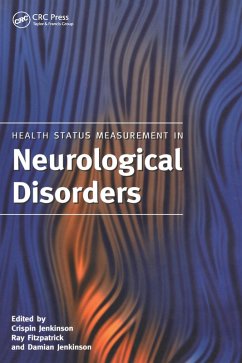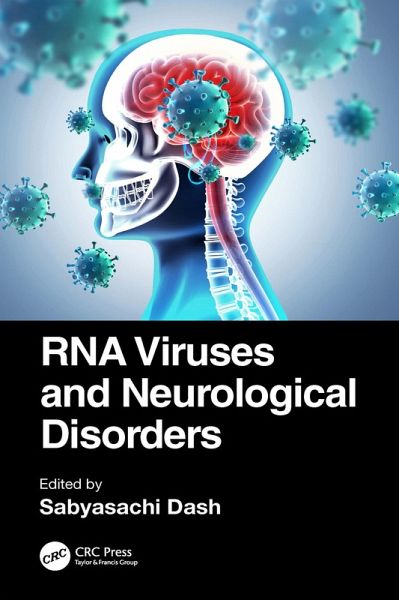
RNA Viruses and Neurological Disorders (eBook, PDF)
Versandkostenfrei!
Sofort per Download lieferbar
64,95 €
inkl. MwSt.
Weitere Ausgaben:

PAYBACK Punkte
32 °P sammeln!
This volume is an accessible introduction to RNA viruses and the infectious outcomes that they cause in the central nervous system (CNS). Chapters cover the major RNA viruses, their impact on the CNS, and the similarities and differences in pathological outcomes that can be observed. Neuroscientists, be they students, researchers, or clinicians, will benefit from the timely coverage provided.Our understanding of viruses, and specifically RNA viruses and their pathological impact, is rapidly evolving. For example, the close molecular interaction of viruses with the CNS cell types in the human h...
This volume is an accessible introduction to RNA viruses and the infectious outcomes that they cause in the central nervous system (CNS). Chapters cover the major RNA viruses, their impact on the CNS, and the similarities and differences in pathological outcomes that can be observed. Neuroscientists, be they students, researchers, or clinicians, will benefit from the timely coverage provided.
Our understanding of viruses, and specifically RNA viruses and their pathological impact, is rapidly evolving. For example, the close molecular interaction of viruses with the CNS cell types in the human host is poorly understood. Readers can use the book to understand clearly the cellular and molecular mechanisms governing pathological outcomes of RNA virus infection in the cell types of the human brain (e.g., neurons, endothelial cells, astrocytes, resident immune cells) based on summarized case studies, and gain insight into how cell type-specific defects affect brain function and cause poor clinical outcomes.
The book is aimed primarily at neuroscience students and postgraduates wishing to learn about virology and professionals who are interested to learn more about virus-associated neuropathology. A basic knowledge of cell and molecular biology is assumed; however, readers across the disciplines of science, technology, engineering, and mathematics will find this topical and timely publication of value.
Our understanding of viruses, and specifically RNA viruses and their pathological impact, is rapidly evolving. For example, the close molecular interaction of viruses with the CNS cell types in the human host is poorly understood. Readers can use the book to understand clearly the cellular and molecular mechanisms governing pathological outcomes of RNA virus infection in the cell types of the human brain (e.g., neurons, endothelial cells, astrocytes, resident immune cells) based on summarized case studies, and gain insight into how cell type-specific defects affect brain function and cause poor clinical outcomes.
The book is aimed primarily at neuroscience students and postgraduates wishing to learn about virology and professionals who are interested to learn more about virus-associated neuropathology. A basic knowledge of cell and molecular biology is assumed; however, readers across the disciplines of science, technology, engineering, and mathematics will find this topical and timely publication of value.
Dieser Download kann aus rechtlichen Gründen nur mit Rechnungsadresse in A, B, BG, CY, CZ, D, DK, EW, E, FIN, F, GR, HR, H, IRL, I, LT, L, LR, M, NL, PL, P, R, S, SLO, SK ausgeliefert werden.





